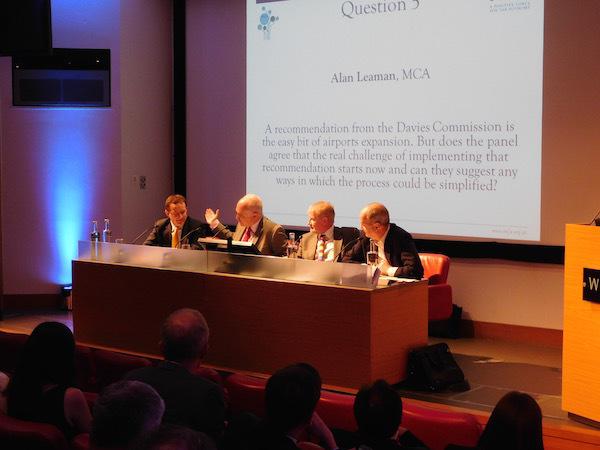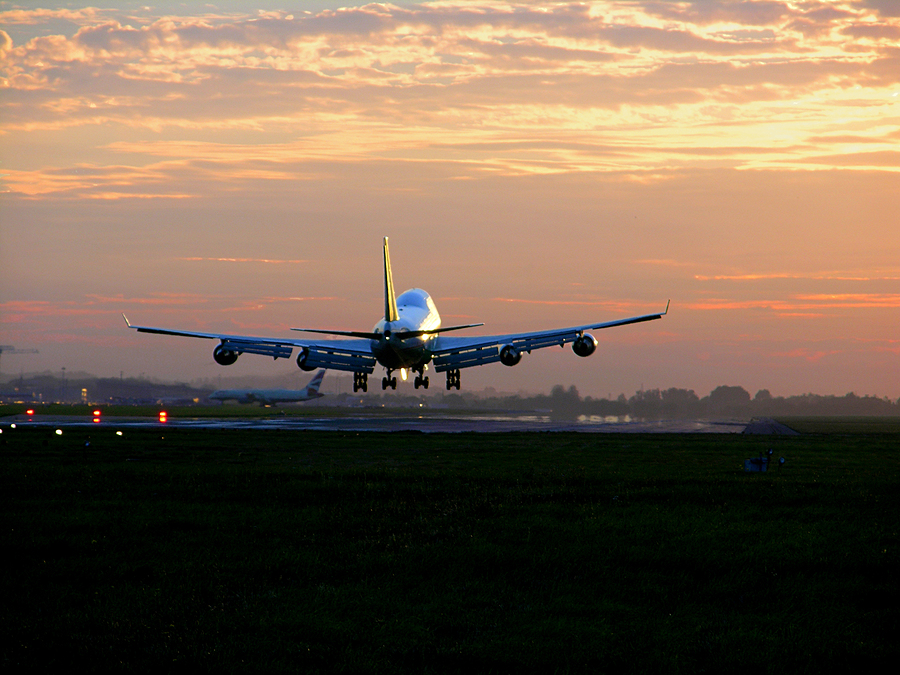The MCA’s Annual Debate this year – to launch our Year of Growth – explored the issues surrounding airport expansion in the South East and the recommendation of the Davies Commission in favour of a third runway at Heathrow. The panel of speakers from Heathrow, Gatwick and City airports was both expert and engaging, well chaired by Stefan Stern of the Financial Times.
There was a strong consensus in our diverse audience of consultants and clients that airport expansion is needed for economic growth. 93% agreed with the proposition that expanding airport capacity will have a beneficial impact on economic growth. “Connections drive growth,” said Andrew MacMillan, Strategy Director at Heathrow airport. On this point at least, Charles Kirwan-Taylor of Gatwick airport agreed: “The UK is the most connected country and London is the most connected city…. a brake on travel is a brake on growth.” The mood in the debate was that the UK should now proceed speedily to take a decision on this issue and then to see it implemented as rapidly as possible.
Many consultants noted that the Davies Commission had broken new ground in its appraisal of a major transport infrastructure project. Future projects will require at least as much analysis and consideration if the UK is to gain value for money and win public consent.
But there was an interesting swing during the evening towards Gatwick as the better option. Gatwick started the debate with support from just 17%. By the end it was the top choice with 38%. As the arguments unfolded, the evening saw support for the Heathrow option fall from 50% to 32%. Declan Collier, Chief Executive of City airport, questioned the arguments for a hub airport: “London is the hub,” he said. “New York and Tokyo have networks of airports around them which gives choice and resilience.”

While these voting figures cannot be anything other than a snapshot of opinion from a specialist audience, they do suggest that the case for the Davies Commission recommendation may not be as open and shut as some have argued. When the Government comes to take its decision later this year, it will need to be able to argue forcefully and credibly in support of its conclusions if it is to carry both political and public support.
The audience expressed concern about a number of other issues. 1 in 5 of our participants were worried that the undoubted economic benefits would not outweigh the environmental impact of airport expansion. And 2 out of 5 in this London-based audience believed that the whole discussion on airport policy was overly focussed on the South East of the country.
As they move towards a decision on airports for London, the Ministry for Transport would also be well advised to be working hard on its approach to regional transport assets and mitigating environmental consequences of growth.
But urgent action is surely needed. The runway at London City airport was built 28 years ago, and it remains the last new runway built in London. The Mayor of London is now preventing further expansion there. Direct connections to emerging markets are said to boost exports to those countries 20-fold. Sir Howard Davies and his Commission have now given their view. The Government is duty bound to respond. This decision must now be postponed much longer.

